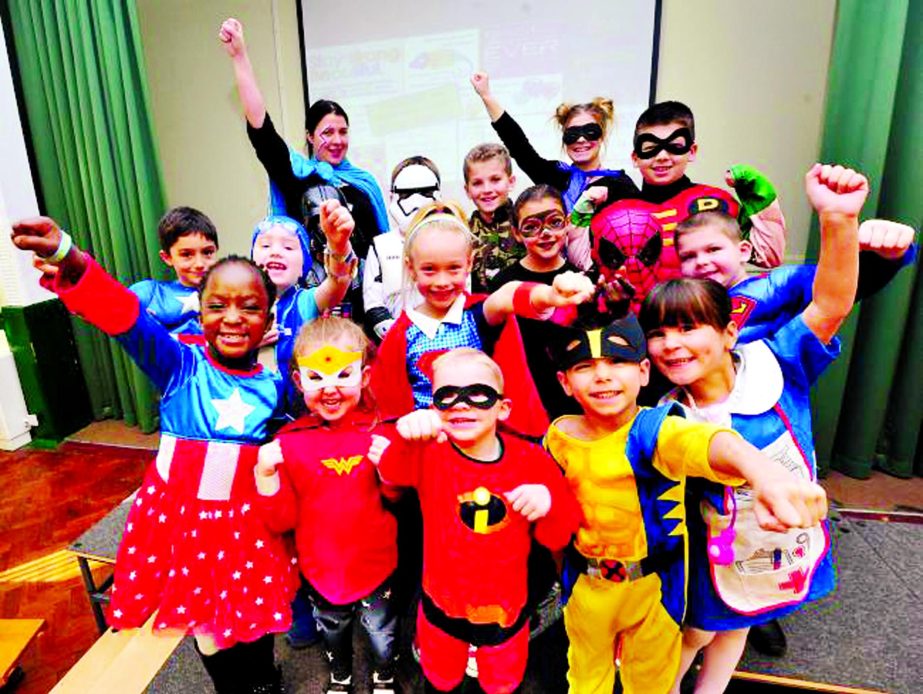
Weekend Plus Desk :
Encouraging children to enjoy a wide variety of toys allows them to develop fully, according to a new study which found that limiting this choice on the basis of their gender can fuel stereotypes. Researchers believe that clues to the continued dominance of men in the science, technology, engineering and mathematics (STEM) fields – and the reason nurturing often comes more easily to women – can be found in the children’s toy department.
“When we wall off the toys that develop spatial skills or are devoted to science and say, ‘These are only for boys,’ and we wall off the toys that develop empathy and verbal skills and say, ‘These are only for girls,’ it severely limits how children develop,” said Elizabeth Sweet from California State University in the US. “If kids are not exposed to the kinds of toys and play that help them develop those skills, they may not be as good at them over time,” said Sweet.
“However even more insidious is that it reinforces the stereotype that boys are good at science and math, and girls are not. It pushes women and girls out of that field, because they think it is not for them,” she said. Some toy manufacturers have proposed making STEM toys pink to appeal to girls.
“I think that is the wrong approach. I think that plays up the stereotype that girls are so different that they need a special kind of STEM toys,” Sweet said. “Everybody was committed to the idea that something needs to change, recognising there is a real problem here,” she said. “There are a lot of gender and racial stereotypes at the core of children’s toys in the media today, and that affects children on a couple of different levels,” she added. “Research shows that different kinds of toys help children to develop different kinds of skills. For instance building blocks are great for building spatial skills,” said Sweet.
“Playing with dolls is really good for developing language skills and nurturing abilities. All of those skills are essential for a fully functioning human,” she said. “Do not go first to the idea that this is a girl, so she must want a princess doll,” said Sweet.
“Play helps children to develop necessary skills and to learn and grow in their world, so the toys that allow for the most open-ended and creative play are those that research has found are best. And I do not recommend that parents limit the possibilities,” she said. n
Encouraging children to enjoy a wide variety of toys allows them to develop fully, according to a new study which found that limiting this choice on the basis of their gender can fuel stereotypes. Researchers believe that clues to the continued dominance of men in the science, technology, engineering and mathematics (STEM) fields – and the reason nurturing often comes more easily to women – can be found in the children’s toy department.
“When we wall off the toys that develop spatial skills or are devoted to science and say, ‘These are only for boys,’ and we wall off the toys that develop empathy and verbal skills and say, ‘These are only for girls,’ it severely limits how children develop,” said Elizabeth Sweet from California State University in the US. “If kids are not exposed to the kinds of toys and play that help them develop those skills, they may not be as good at them over time,” said Sweet.
“However even more insidious is that it reinforces the stereotype that boys are good at science and math, and girls are not. It pushes women and girls out of that field, because they think it is not for them,” she said. Some toy manufacturers have proposed making STEM toys pink to appeal to girls.
“I think that is the wrong approach. I think that plays up the stereotype that girls are so different that they need a special kind of STEM toys,” Sweet said. “Everybody was committed to the idea that something needs to change, recognising there is a real problem here,” she said. “There are a lot of gender and racial stereotypes at the core of children’s toys in the media today, and that affects children on a couple of different levels,” she added. “Research shows that different kinds of toys help children to develop different kinds of skills. For instance building blocks are great for building spatial skills,” said Sweet.
“Playing with dolls is really good for developing language skills and nurturing abilities. All of those skills are essential for a fully functioning human,” she said. “Do not go first to the idea that this is a girl, so she must want a princess doll,” said Sweet.
“Play helps children to develop necessary skills and to learn and grow in their world, so the toys that allow for the most open-ended and creative play are those that research has found are best. And I do not recommend that parents limit the possibilities,” she said. n

